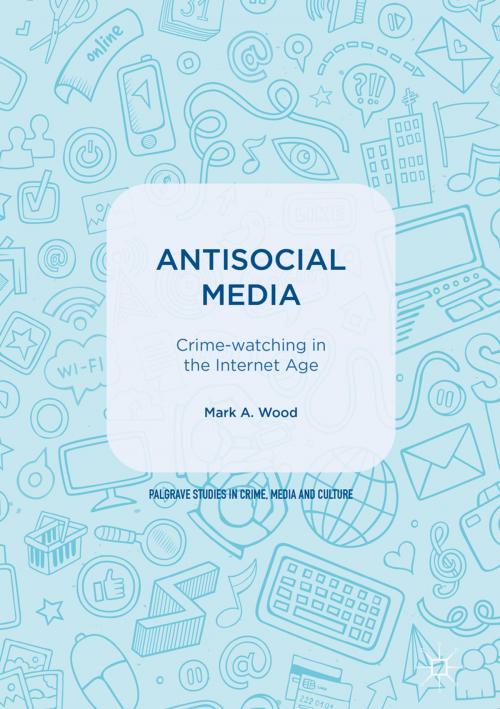Antisocial Media
Crime-watching in the Internet Age
Nonfiction, Social & Cultural Studies, Social Science, Crimes & Criminals, Criminology, Sociology| Author: | Mark A. Wood | ISBN: | 9783319639857 |
| Publisher: | Springer International Publishing | Publication: | November 26, 2017 |
| Imprint: | Palgrave Macmillan | Language: | English |
| Author: | Mark A. Wood |
| ISBN: | 9783319639857 |
| Publisher: | Springer International Publishing |
| Publication: | November 26, 2017 |
| Imprint: | Palgrave Macmillan |
| Language: | English |
This book provides a cutting-edge introduction to Internet-facilitated crime-watching and examines how social media have shifted the landscape for producing, distributing, and consuming footage of crime. In this thought-provoking work, Mark Wood examines the phenomenon of antisocial media: participatory online domains where footage of crime is aggregated, sympathetically curated, and consumed as entertainment. Focusing on Facebook pages dedicated to hosting footage of street fights, brawls, and other forms of bareknuckle violence, Wood demonstrates that to properly grapple with antisocial media, we must address not only their content, but also their software. In doing so, this study goes a long way to addressing the fundamental question: how have social media changed the way we consume crime?
Synthesizing criminology, media theory, software studies, and digital sociology, Antisocial Media is media criminology for the Facebook age. It is essential reading for students and scholars interested in social media, cultural criminology, and the crime-media interface.
This book provides a cutting-edge introduction to Internet-facilitated crime-watching and examines how social media have shifted the landscape for producing, distributing, and consuming footage of crime. In this thought-provoking work, Mark Wood examines the phenomenon of antisocial media: participatory online domains where footage of crime is aggregated, sympathetically curated, and consumed as entertainment. Focusing on Facebook pages dedicated to hosting footage of street fights, brawls, and other forms of bareknuckle violence, Wood demonstrates that to properly grapple with antisocial media, we must address not only their content, but also their software. In doing so, this study goes a long way to addressing the fundamental question: how have social media changed the way we consume crime?
Synthesizing criminology, media theory, software studies, and digital sociology, Antisocial Media is media criminology for the Facebook age. It is essential reading for students and scholars interested in social media, cultural criminology, and the crime-media interface.















